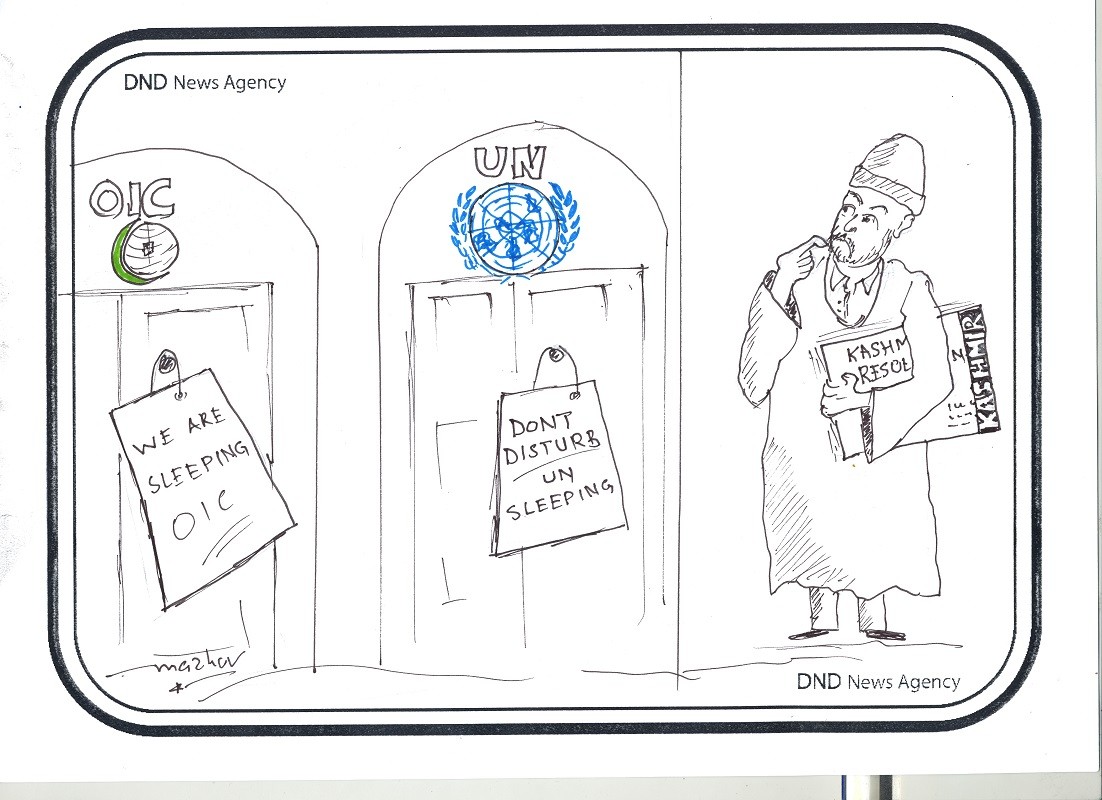
By Seymour Mammadov
On August 5, 2019, the Indian government abolished the special autonomous status of Kashmir State. Not limiting themselves to abolishing the special status of Kashmir, the Indian authorities accompanied their decision by blocking communication lines in the Kashmir Valley, a region that has long been engulfed in uprisings by local residents.
This deprived Kashmiris of access to the Internet and telephone communications. In addition, several leading Kashmiri politicians have been arrested, including the former prime minister of the region. Indian government officials at the time justified all of these measures by arguing that they were aimed at preventing violence. All these measures of the Indian authorities received wide support among the ruling Bharatiya Janata Party, as well as Bahujan Samaj Party, Aam Aadmi Party, and others.

As for the population of Jammu and Kashmir itself, at that time no protest voices could be heard from there because of lockdown, and communication blackout and because all prominent politicians were arrested. However, there are also those Indian political parties and organizations that condemned the decision of their country’s authorities regarding the status of Jammu and Kashmir. Among them were such parties as to the Indian National Congress (INC), the National Conference of Jammu and Kashmir, the People’s Democratic Party of Jammu and Kashmir, Janata Dal, and others.
Foreseeing that the abolition of the special status of Jammu and Kashmir could lead to unrest in the region, the Indian authorities decided to send extra forces in the already militarized region.
The entry of troops into the region was marked by massive violence against the Muslim population of the region. Shops were also closed and even looted, which resulted in the population of the region being deprived of the opportunity to simply buy food.
In accordance with the decision of the Indian authorities, the state was divided into two union territories of Jammu and Kashmir, which governed by a separate legislature, and Ladakh, which directly controlled by the central government.
All these demarches by the Indian authorities received a negative reaction and were condemned by the international community. The Organization of Islamic Cooperation (OIC) has called on the Indian authorities to ensure that the rights of the Muslim population of Kashmir are respected.
“The OIC General Secretariat expresses concern over reports of violations of the religious freedoms of Muslims in the Indian-occupied region of Jammu and Kashmir, including the obstruction of festive events on the occasion of the Eid al-Adha holiday. The organization demanded to the Indian authorities to ensure the protection of the rights of Kashmiri Muslims and to grant them freedom of religion, “the statement said.
In addition, more than 50 UN member states, including Turkey, have called on India to end human rights abuses in the New Delhi-controlled Jammu and Kashmir region.
“The deterioration of the human rights and humanitarian situation in Indian-ruled Jammu and Kashmir, especially after the decisions taken on 5 August 2019, requires urgent attention from the Human Rights Council and human rights mechanisms. The joint statement in the framework of the 42nd session of the UN Human Rights Council in Geneva through a declaration also called for an immediate lifting of curfews, unblocking access to communications (the Internet) and the release of political prisoners in Jammu and Kashmir.
Almost the entire world community has supported Pakistan, seeing very well what violations Kashmiris are facing in their region. Unfortunately, despite repeated appeals from authoritative international organizations, India chose to follow a completely different path, which runs counter to the efforts of the OIC and the UN in the settlement of the Kashmir issue.
If someone thinks that the problem of Jammu and Kashmir is a frozen conflict, they are deeply mistaken – there are constant clashes between Kashmiris and representatives of the Indian authorities in this region, and armed conflicts between India and Pakistan do not stop because of Kashmir, on the contrary, only intensify. Today, many countries and authoritative organizations call on both sides for restraint, for the settlement of the conflict by peaceful negotiations, but if one of the conflicting parties avoids negotiations (India), is not interested in discussing the Kashmir issue at the negotiating table, and does not comply with the UN Security Council resolutions, then how can the territorial issue be resolved through negotiations?
A similar situation is observed with the settlement of the Karabakh conflict. The four resolutions of the UN Security Council adopted since 1993 have not yet been fulfilled by the Armenian side, and the negotiations held for more than 25 years did not in any way affect the status quo around Nagorno-Karabakh and the seven adjacent regions. Then what is the point in these negotiations if they do not yield any results? How long should Kashmiris and Azerbaijanis wait for a solution to their problems? Today this is the main issue that worries them.
The Kashmiris want one thing – stability and peace through the right of plebiscite in their region, unfortunately, the Kashmiris cannot yet feel the tranquility of life. It is possible to achieve stability in the region through violence only temporarily, but not forever, since a gross violation of the law, violence generates even more violence and a wave of political instability. The settlement of any territorial conflicts should be based on international law, on the resolutions of the UN Security Council. However, after the bombing of Yugoslavia by NATO forces, the UN lost not only its former strength, but also its trust, and the system of international law lost its attractiveness. Therefore, it is very important to work out global reforms in improving the values of international law, for example, restarting the system of international relations, reforming the UN, expanding the composition of the permanent members of the UN Security Council. I would like to believe and hope that the long-awaited revolution will come in the system of international law, in anticipation of which Azerbaijan, Pakistan and other countries.
